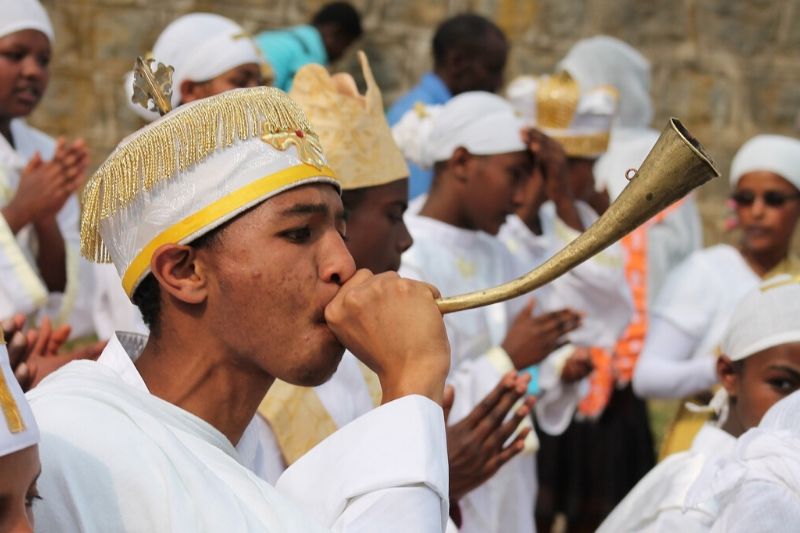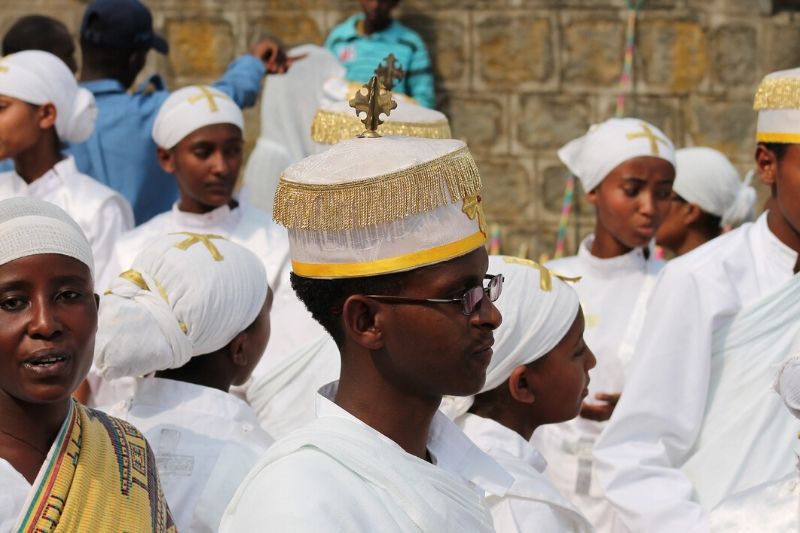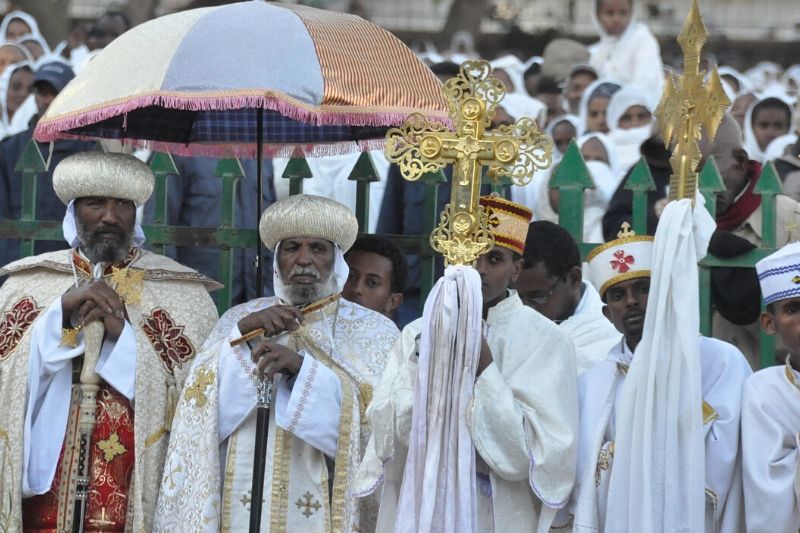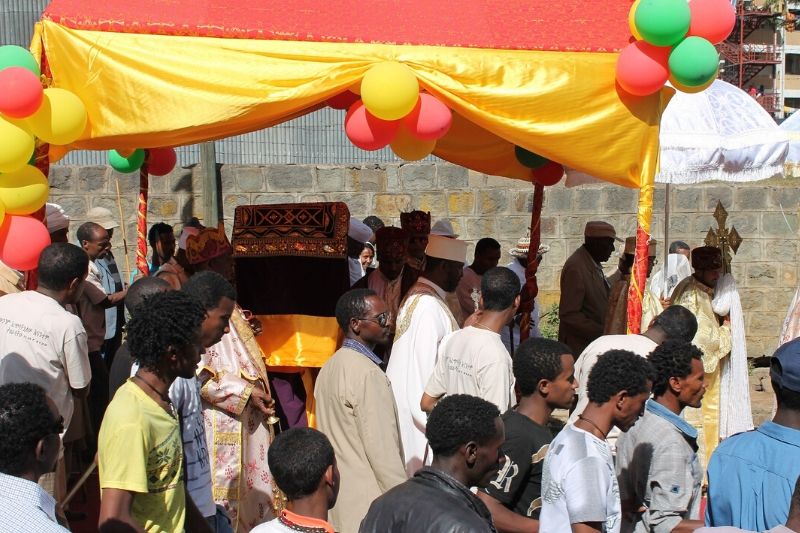Timket Festival – celebrating the epiphany – is one of the grandest occasions amongst Ethiopia’s Orthodox Christian community. The celebration occurs on the 19 of January once every four years and commemorates the baptism of Christ at the river Jordan by his forerunner, John the Baptist. Timket is a 3-day event with lots of interesting features and the celebration comes 12 days after the Ethiopian Christmas (also referred to as Gehenna).
The highly revered festival is considered a period of religious sanctification and spiritual revival amongst the orthodox Christians who take the chance to give thanks to God for spiritual nurturing. Here are 8 Facts You Should Know About Timket Festival
1. Timket Is Set After The Harvest Season
Ethiopians are regarded as one of the oldest Humans on the planet historically with a strong cultural heritage. Timket Festival signifies a part of their cultural heritage adopted from the holy book. The festival usually occurs on January 19 which happens to be after the harvest period in Ethiopia. The festival offers the farmers and other Ethiopians the opportunity to take a rest from work and get to visit friends and families or perform various personal duties.
2. The Shamma
The Timket Festival is such a unique occasion with a special outfit to commiserate the event. The cloth is referred to as ‘Shamma’ in the Ethiopian tongue. The adults who participate in the festival to prepare for the event by washing their white cotton robe – Shamma – and restoring it to brilliant whiteness. As part of the celebration, they also slaughter animals like sheep and they brew special beer, bake bread in preparation for the festival.
3. The Tabot
One of the most significant parts of the Timket Festival is the ‘Tabot’. The ‘Tabot’ is a term in Amharic used to refer to the Ark of The Covenant. During the Ethiopian Timket Festival, over 40 Ark of The Covenant replicas from different local churches are made to converge at Jan Meda – which happens to be a special open field in Addis Ababa used for horse racing. There are special tents majestically perched on the field for each Tabot.
Children from Sunday school sing different hymns and the priests show special choreographic moves with their praying sticks and special Cestrum which is accompanied by heavy beats of drums. Each Tabot is carried by a renowned senior priest to the spot of the celebration wrapped up with special colorful clothes prepared for the event with a colorful umbrella. The act is a replica of the actual Ark of The Covenant and the Ten Tablets from the law of Moses of the old testament which the prophet received at Mount Sinai. After the two days, the Tabots are sent back to their respective churches.
4. Baptism And Washing Away Of Sin
On the morning of the second day of the Ethiopian Timket celebration, the priest blesses the water of the historic bath. This act portrays the baptism of Jesus Christ by John the Baptist in the New Testament and the Ethiopian orthodox Christians re-enact it with faith as a remembrance of Christ. While the priest blesses the pool of water, onlookers crowd surround the pool to get a pristine view.
After the water has been blessed and consecrated for baptism, the mood of the crowd turns jubilant as they jump into the pool of water which is believed to cure sickness and wash away their sins. The baptism is however done differently in different parts of Ethiopia. In some parts, the priest would collect the water and sprinkle on the people or collect water from tree pies and pour on the people depending on the availability of the water.

5. Cultural Dating Day
Aside from the religious aspect of the Ethiopia Timket Festival, the event also has a social aspect that happens to be a cultural dating day for young people who are trying to choose their spouses. This is done in a special ceremony where young men throw lemon on the chest of the young girls as an indication of their future partner. The girls sometimes also take part in these activities.
6. Traditional Horse Race
During the Ethiopian Timket Festival, the people engage in horse traditional horse race. Though this event usually held on many feast days, the occasion resembles medieval European jousting. The participant wear capes from lions’ manes and hair dresses made from baboon hair. To adorn their horses, they use colorful brocades, velvets, and tassels. The traditional horse racing game is said to have been developed from military maneuvers practiced by warriors in past eras. The game is played as one band of horsemen armed with bamboo lances tries to knock out the members of the other band off their horses.

7. Special Spiritual Reconciliation
The Timket Festival is considered a period of spiritual reconciliation and awakening by devout believers. It’s also a period of reconciliation amongst members of the society who previously had differences.
8. World Cultural Heritage
The organizers of Ethiopia’s Timket Festival are working to inscribe Timket at UNESCO as an intangible cultural heritage like Meskel. Efforts to inscribe the Epiphany in UNESCO were started in January 2016 in cooperation with Ethiopian Orthodox Churches and Ministry of Tourism and Culture. Ethiopia, therefore, expects the registration of Timket at the 14th annual meeting of UNESCO for the Safeguarding of the Intangible Cultural Heritage that will take place from 9 to 14 December 2019 in Bogotá, Colombia.













